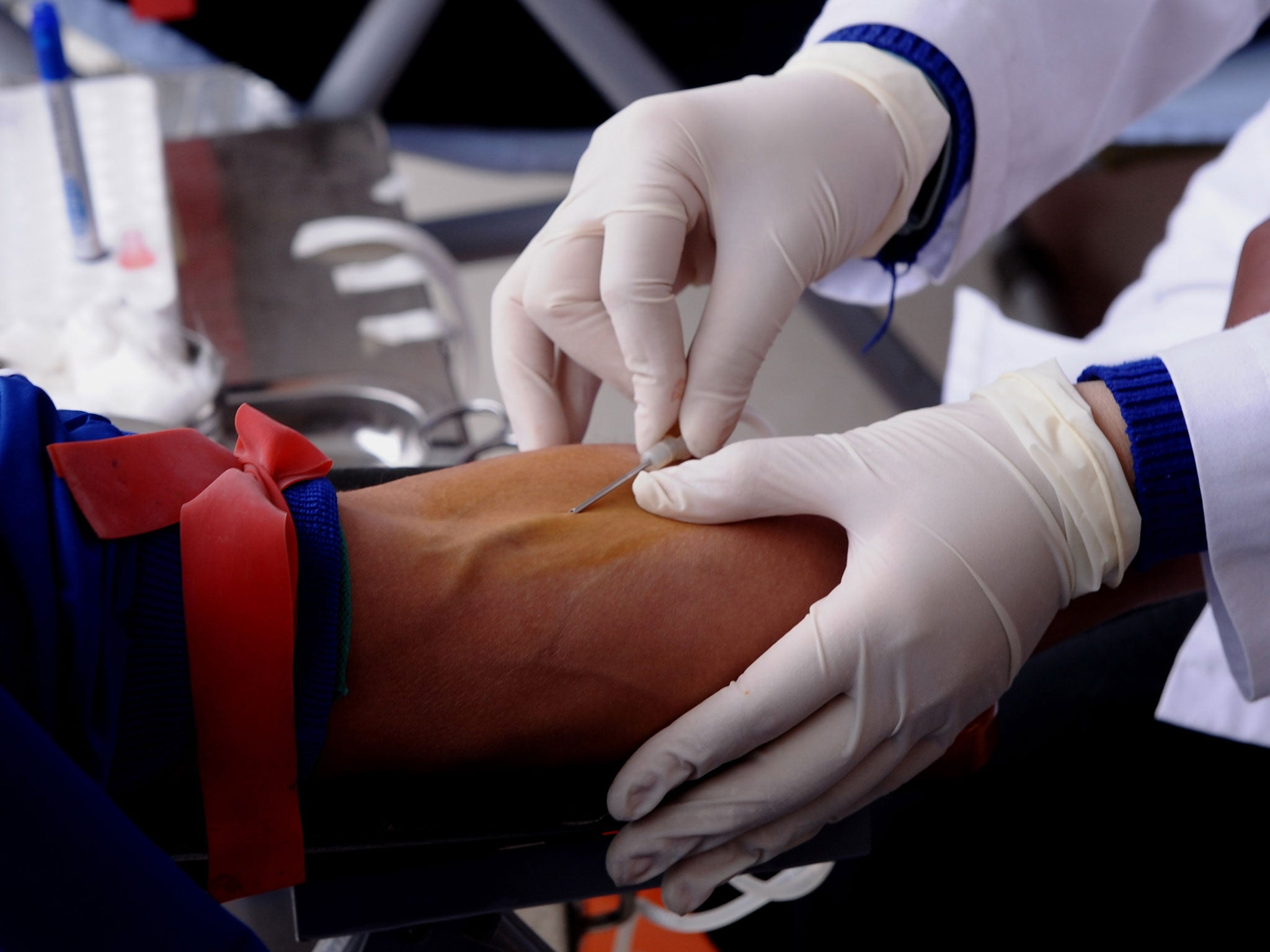Blood test that predicts Alzheimer's disease
The test can detect the disease up to three years before the onset of symptoms, however it is only 90 per cent accurate

Your support helps us to tell the story
From reproductive rights to climate change to Big Tech, The Independent is on the ground when the story is developing. Whether it's investigating the financials of Elon Musk's pro-Trump PAC or producing our latest documentary, 'The A Word', which shines a light on the American women fighting for reproductive rights, we know how important it is to parse out the facts from the messaging.
At such a critical moment in US history, we need reporters on the ground. Your donation allows us to keep sending journalists to speak to both sides of the story.
The Independent is trusted by Americans across the entire political spectrum. And unlike many other quality news outlets, we choose not to lock Americans out of our reporting and analysis with paywalls. We believe quality journalism should be available to everyone, paid for by those who can afford it.
Your support makes all the difference.A blood test that can detect Alzheimer’s disease up to three years before the onset of symptoms has been developed by scientists who believe that it could lead to the early diagnosis of progressive dementia in elderly people.
The test raises ethical concerns, however, as it is only 90 per cent accurate in its current form – meaning that up to one in ten people could be wrongly diagnosed with a disease for which there is no effective treatment.
Researchers nevertheless believe that a blood test for Alzheimer’s could help in the search for a therapy or cure by identifying those people in the population at highest risk and who could therefore benefit most from experimental treatments.
The blood test is based on analysing the fatty chemicals – known as lipids – circulating in the bloodstream, which begin to change as a result of a breakdown in the membranes of the brain cells associated with Alzheimer’s.
Scientists have known that Alzheimer’s disease begins long before the onset of the diagnostic symptoms, such as memory loss or confusion, and have tried for many years to find ways of detecting these changes with simple tests that could be used in the clinic.
A team of researchers led by Howard Federoff of Georgetown University Medical Centre in Washington identified 10 lipids in the blood that can be used to detect the early signs of Alzheimer’s or other forms of dementia, which affects one in three people over the age of 65.
“Our novel blood test offers the potential to identify people at risk for progressive cognitive decline and can change how patients, their families and treating physicians plan for and manage the disorder,” Dr Federoff said.
“If there were to be a test that could be ordered by a clinician to determine Alzheimer’s risk, the patient, along with their family and clinician, would have to determine what’s right for them: test or not test. If so, the testing process would need to be managed and could involve counselling akin to [gene tests] for cancer risk,” he told The Independent.
Doug Brown, director of research and development at the Alzheimer’s Society, said it is the first time that a blood test has been developed for the disorder, but there are problems in working out how it can be used in practice.
“Having such a test would be an interesting development, but it also throws up ethical considerations. If this does develop in the future, people must be given a choice about whether they would want to know, and fully understand the implications,” Dr Brown said.
The study, published in the journal Nature Medicine, involved taking blood samples from 525 healthy volunteers over the age of 70 who were monitored over five years to see whether they went on to develop mild dementia or Alzheimer’s.
The researchers identified the 10 lipids after some of the volunteers were showing the first signs of dementia, and then used the same panel of “biomarkers” to predict whether the other volunteers will go on to develop the disorder.
“The lipid panel was able to distinguish with 90 per cent accuracy these two distinct groups – cognitively normal participants who would progress to mild cognitive impairment or Alzheimer’s disease within two to three years, and those who would remain normal in the near future,” Dr Federoff said.
Although further research is needed to validate the results and improve the accuracy, a test could be used commercially within a few years, especially to identify people at risk who could take part in clinical trials of prototype treatments, he said.
“Such a test would identify high-risk individuals who might then be eligible to participate in clinical trials, testing therapies that might halt or prevent disease progression,” Dr Ferderoff said.
“The pre-clinical state of the disease offers a window of opportunity for timely disease-modifying intervention. Biomarkers such as ours that define this asymptomatic period are critical for successful,” he said.
“We consider our results a major step toward the commercialisation of a pre-clinical disease biomarker test that could be useful for large-scale screening to identify at-risk individuals.
“We’re designing a clinical trial where we’ll use this panel to identify people at high risk for Alzheimer’s to test a therapeutic agent that might delay or prevent the emergence of the disease,” he added.
Join our commenting forum
Join thought-provoking conversations, follow other Independent readers and see their replies
Comments